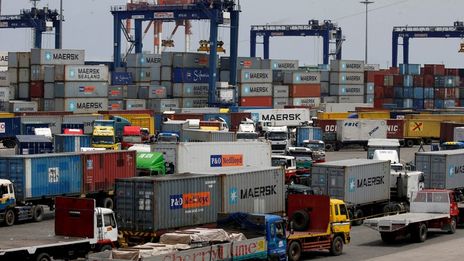MOSCOW, Oct 9 (Reuters) - Russian wheat exports in October are seen falling below the level they were at last year due to weak demand from major importers and informal restrictions imposed by the Russian Agriculture Ministry, analysts say.
Russia has so far been exporting wheat at a record pace this year after a record harvest in 2022 of 104.2 million tons.
The Sovecon agriculture consultancy estimated Russian wheat exports in October at 3.9-4.4 million tons. October exports last year stood at 4.5 million tons.
Sovecon estimated September wheat exports at 5.0 million tons.
"...Wheat export sales continue to tank. Week on week, they dropped by 1.4 million tons to 2.6 million tons. This is the lowest level since July 2023," Sovecon wrote in its weekly note.
"We believe it's mainly related to the Agriculture Ministry's attempts to limit exports at levels below their price floor."
Reuters sources said last week that the ministry's informal minimum export price requirement of $270 per ton FOB (Free On Board) for tenders, and $260 per ton outside tenders, remained in place.
The Ministry of Agriculture has not commented on this information and did not immediately respond to a new request for comment from Reuters.
Another agriculture consultancy, IKAR, sees the pace of new deals declining and forecasts wheat exports in October at 4.5 million tons, down from 4.7 million tons a year earlier.
It estimated September exports at 5.4 million tons.
"Firstly, this is due to high stock levels in two main importing countries for Russia: Turkey and Egypt. In addition, the potential of European suppliers has not yet been realised. And also everyone expects the opening of a more active grain export flow from Ukraine," said Dmitry Rylko, IKAR's head.
Russia does not publish official export statistics.
According to Eduard Zernin, the head of lobbying group Rusgrain Union, Russian exports "are under pressure from an unprecedented attack by stock exchange speculators. It is possible that such aggressive sales of uncovered derivatives are aimed at stopping real grain exports," he said.
"It is more profitable for us to wait it out than to sell at a loss to ourselves and Russian agricultural producers," he wrote on the union's official Telegram social media channel.
On the Russian domestic market, prices are falling due to high inventory levels amid a new harvest and almost no demand from exporters.
The Agriculture Ministry last week announced its intention to buy 2 million tons of grain by the end of the year. (Reporting by Olga Popova Editing by Andrew Osborn)


























